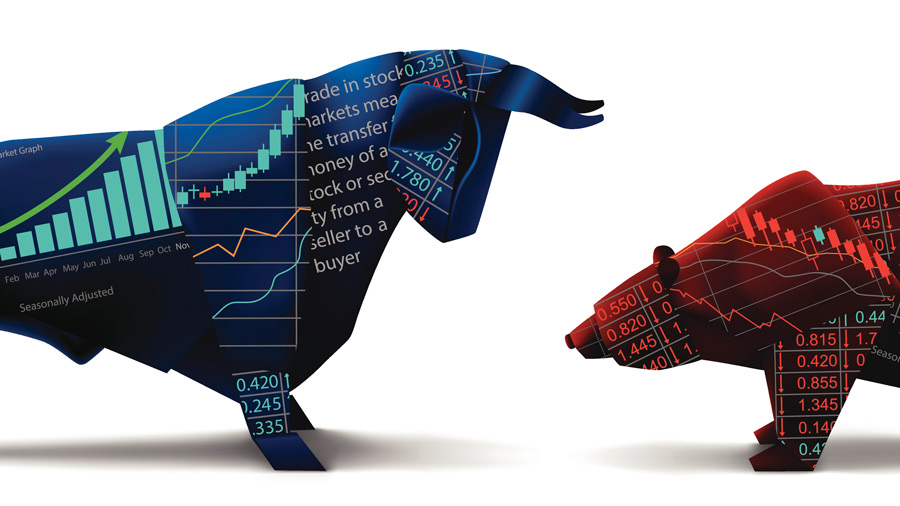Personal Wealth Management / Market Analysis
Confounding Currency Myths
There's no shortage of opinions about the most important factors to consider when investing. I can't tell you if any foretell outsized returns, but I do know global investors of every ilk should keep an eye on one common factor: Currency exchange rates.
There's no shortage of opinions about the most important factors to consider when investing. Stock investors look at revenue growth, gross margins, earnings-per-share, PE ratios, and whether or not Tiger Woods has ever used, worn, applied, or consumed a company's products—to name just a few. I can't tell you if any of these foretell outsized returns, but I do know global investors of every ilk should keep an eye on one common factor: Currency exchange rates.
Currencies can have a meaningful impact on investment returns, but not in the way many investors think. One of the most prominent misperceptions is a weak currency portends weak stock returns or vice versa. A simple comparison of US dollar strength and stock market performance shows this is false. For example, from 1980-1984, the dollar appreciated tremendously. The US Dollar Trade Weighted Index—a measure of the dollar relative to trading partners' currencies—gained over 75% in just five years. And stocks followed suit with the S&P 500 jumping 99% (or 15% per year annualized). Then from 1985-1987, the dollar plummeted 44%, thanks largely to the Plaza Accord, but stocks didn't follow the dollar lower, instead rising 65% (28% per year annualized).
More recently, the dollar was generally weak from 2003-2004, but the stock market was strong. In 2005, both the dollar and stocks rose. From 2005 through 2007, the dollar was again weak, but stocks were up. In 2008, the dollar surged while stocks plummeted as risk-averse investors sought the safety of US assets (mostly government bonds). So far in 2009, the dollar has suffered as stocks rebound. Fact is, exchange rates and stock prices usually have little in common, and over long periods, the correlation between the two is pretty much negligible.
Exchange rates might not tell you where stocks are headed, but currencies can have a big impact on investment returns in the short-term. For global investors, a sliding greenback actually boosts returns on foreign holdings. Here's how: Say you buy 100 shares of a German company at €10 per share. If the US dollar/euro exchange rate is $1.25/€, those 100 shares will cost you $1,250 (100shares*€10/share*$1.25/€=$1,250). If the share price doesn't budge but the euro rises to $1.50/€, the value of your investments increase to $1,500 (100 shares*€10/share*$1.50/€=$1,500). That's a 20% gain with no change in the stock price! The opposite happens if the euro slides versus the dollar.
Over short periods, currencies can contribute more to foreign stocks' returns than the stocks themselves. Consider a recent historical example: From January 2002 to December 2004, foreign stocks creamed US stocks. Over the period, the MSCI EAFE Index, a proxy for the performance of non-US shares, jumped 48% for US investors versus a relatively modest gain of 10% for US stocks. But a full 43% of foreign stocks' return was due to strong foreign currencies. Without the currency boost, foreign shares in aggregate actually underperformed US stocks fairly significantly.
Currencies also had a big impact on investment returns in 2008. In this all-around dismal period, Japanese stocks fell less than other major markets when measured in US dollars—a mere 26% drop. That's hardly a banner year, but it's much better than global stocks' 41% decline. But Japanese investors were hardly dancing in the streets over their returns. Measured in yen, Japanese stocks fell a hefty 43%—worse than most developed markets. The outperformance of Japanese investments for those in the US wasn't driven by better stock prices; it was the result of a strong yen.
US investors owning UK stocks in 2008 experienced the opposite effect. Measured in sterling, UK stocks dropped 29%. That would have been a relatively good showing, but when compounded with a weak currency—the sterling plummeted versus the dollar—UK stocks returned a much worse -48%!
So what should US investors do about currencies in their global portfolios? Probably nothing! After all, the US accounts for half the value of global stocks, so a large share of a properly diversified global portfolio will likely be invested in the US. And even though currencies can have a meaningful impact on foreign investment returns in the short run, exchange rate fluctuations pretty much even out over time. Over the last 30 years, currencies have contributed less than 1% per year to returns on foreign stocks for US investors. That's paltry compared to average annual gains of nearly 10% on the stocks themselves. So if you have a decently long time horizon, currencies aren't likely to impact your foreign investments much. Currencies also add diversification since there's little correlation between changing stock prices and exchange rates. For most folks, maintaining a global portfolio with exposure to currencies all over the world is a great long-term strategy.
For more on the impact of currencies on foreign investments, see Chapter 8 of my new book Own the World: How Smart Investors Create Global Portfolios.
If you would like to contact the editors responsible for this article, please message MarketMinder directly.
*The content contained in this article represents only the opinions and viewpoints of the Fisher Investments editorial staff.
Get a weekly roundup of our market insights
Sign up for our weekly e-mail newsletter.

See Our Investment Guides
The world of investing can seem like a giant maze. Fisher Investments has developed several informational and educational guides tackling a variety of investing topics.





